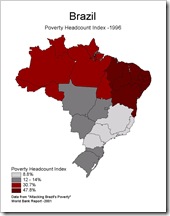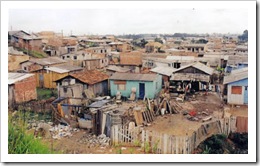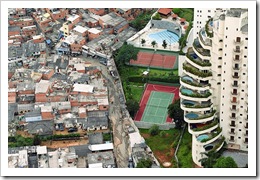Brazilian President Says World Government Solution To Problems.
 Brazil, home of the “Christ the Redeemer” statue in Rio de Janeiro atop Corcovado Mountain while also home to the Brazil Carnival bringing opposite ends of the spectrum together in one city. And also in Rio de Janeiro there are are haves and have nots, with basically only two social classes, and no middle class. The president of Brazil seems to have the answer, in his mind, to the world’s economic problems via “redistributing income” thus “reducing social inequality”. Or is he giving a smoke and mirrors story?
Brazil, home of the “Christ the Redeemer” statue in Rio de Janeiro atop Corcovado Mountain while also home to the Brazil Carnival bringing opposite ends of the spectrum together in one city. And also in Rio de Janeiro there are are haves and have nots, with basically only two social classes, and no middle class. The president of Brazil seems to have the answer, in his mind, to the world’s economic problems via “redistributing income” thus “reducing social inequality”. Or is he giving a smoke and mirrors story?
Luiz Inacio Lula Da Silva says “More government is the solution, not the problem” according to Newsweek article.
As I told the U.N. General Assembly in September, now is the time for politics, for governments to use public control and oversight to halt the economic anarchy. […]
The abuses and errors coming to light daily are all evidence that our existing system of international economic governance has broken down. To develop a better one, the world’s major developing countries should be called on to join the debate. We have plenty to contribute. Take Brazil. We are ready to do our part, and our economy is better prepared than most to confront the crisis. We have said no to macroeconomic adventurism. Inflation is under control and we are growing steadily. We have plenty of foreign reserves and owe nothing to the International Monetary Fund. […]
Brazil is also better prepared to deal with the social and economic dislocation that may ensue. Consider: since I took office in 2003, more than 10 million Brazilians have joined the workforce. Some 20 million have risen out of absolute poverty. […] Above all, we are redistributing income and reducing social inequality.
IS BRAZIL REALLY IMMUNE OR IS THIS A SNOW JOB?
 Silva thought not too long ago, in fact just weeks ago, there were buffered from the economy woes that the rest of the world suffered. Wonder why Silva isn’t talking about the homeless, where 71 out of 100 homeless people work but still have no home? A country where 19% of the people live on $2 a day or less in a country where the minimum wage is about $100 a month. A country where there there was renewed illegal occupations of empty buildings, over a year ago, with one building holding around 2,000 people in San Paulo. A country where a little nine year old girl has never owned or even worn a pair of shoes. And where a family stipend of $50 a month has Brazil claiming to have reduced poverty and narrowed the gap between the have and have-nots. A country that operates in slum warfare. And a country that spends half of its GDP on social programs. A country that has an infant mortality rate of 23.33 deaths/1,000 live births (US has a rate of 6.3). And they have major street gang problems in the Favaelas (slums) of Rio de Janerio.
Silva thought not too long ago, in fact just weeks ago, there were buffered from the economy woes that the rest of the world suffered. Wonder why Silva isn’t talking about the homeless, where 71 out of 100 homeless people work but still have no home? A country where 19% of the people live on $2 a day or less in a country where the minimum wage is about $100 a month. A country where there there was renewed illegal occupations of empty buildings, over a year ago, with one building holding around 2,000 people in San Paulo. A country where a little nine year old girl has never owned or even worn a pair of shoes. And where a family stipend of $50 a month has Brazil claiming to have reduced poverty and narrowed the gap between the have and have-nots. A country that operates in slum warfare. And a country that spends half of its GDP on social programs. A country that has an infant mortality rate of 23.33 deaths/1,000 live births (US has a rate of 6.3). And they have major street gang problems in the Favaelas (slums) of Rio de Janerio.
 Silva also fails to mention that two of the largest banks in Brazil, announced a merger in November creating a bank with combined assets of 575 billion reais ($263 billion). Officials have also moved to shore up the banking system. The government has reserved the right to take stakes in struggling banks, via the two big state-owned ones.
Silva also fails to mention that two of the largest banks in Brazil, announced a merger in November creating a bank with combined assets of 575 billion reais ($263 billion). Officials have also moved to shore up the banking system. The government has reserved the right to take stakes in struggling banks, via the two big state-owned ones.
Silver seems to have forgotten that on Oct 29 the US Federal Reserve announced a deal with Brazil, Singapore, South Korea and Mexico under which it will provide up to $30 billion to each of them.
There are reports that farmers are finding it hard to find credit to buy supplies which could affect next year’s investments. The Brazilian government is helping farmers finance via increased farm credits amounting to $49 billion due to the rising food prices to encourage Brazilian farmers to grow more food, thus depending less on exports. And this was in August, before the market collapsed.
Oh and you remember that little rice shortage back in April of 2008? Brazil decided to ban rice exports when they were needed most although Brazil grows more rice than it consumes, yet the price of rice in Brazil jumped 19.8 percent for domestic rice. Also in May alone, food prices rose 2%, bread jumped 4.7%, meat increased 3.5%. In January 2009, it was announced that Brazils 12-month inflation rate was at 6.4% And currently Brazil posted its smallest trade surplus in six years in 2008.
In October, there was a sell-off of Brazilian shares and the currency as foreign investors rushed to cover losses elsewhere. The sell-off triggered unexpected losses on foreign-exchange derivatives that were meant to limit the exposure of Brazilian companies to currency moves but have exacerbated it instead. The Brazilian press estimated that some 200 companies hold such contracts.
External funding has dried up. Figures from the central bank show that credit lines to finance trade, normally considered low-risk, are running at about half the level of mid-September.
Consumer credit is becoming scarcer as banks anticipate a rise in bad loans. The monthly payments demand for everything is rising.
At the end of October, Paulo Bernardo, the planning minister, confirmed that the government had reduced its target for the primary fiscal surplus (the difference between revenue and spending before debt payments) for 2009 from 4.3% to 3.8% of GDP. This plan depends on private investors being able to raise credit.
In the free-trade zone around Manaus, in the Amazon, a dozen companies have told their staff to take unpaid leave. Jobless claims rose unexpectedly in November, rising from 7.5% to 7.6%, must lower than a Nov 2007 rate of 8.2%.
In December, output, new orders, employment and purchases all contracted at series-record rates as confidence and demand fell sharply. Inflation rose. The PMI dropped to a new low of 40.0 in December with the PMI registering below the no-change mark of 50.0 for three consecutive months.
In late December, 2008 that new measures to help Brazil counter the effects of the economic crisis will be announced by Jan 20. He said the country is “strong economically” but will act immediately to keep the “perverse effects” of the crisis from affecting the nation. There were no details during his past weekly radio address, with him only saying that the government will start 2009 working hard to boost the economy.
RANT ON
So if your country is all hunky-dorey and is immune from the economic problems that everyone else in the world is suffering, why is there a plan to boost the economy? I mean seriously. Previously $50 bucks a month in welfare makes the difference between poverty and middle class in Brazil? Sounds like to me, the “perverse effects” are already happening, were happening before the market dropped out in October and Silva’s blowing smoke to cover his country’s problems. The president of Brazil needs to keep his Socialist cover story with lies and his Socialist ideas within Brazil.



0 Responses to "Brazilian President Says World Government Solution To Problems."
Post a Comment